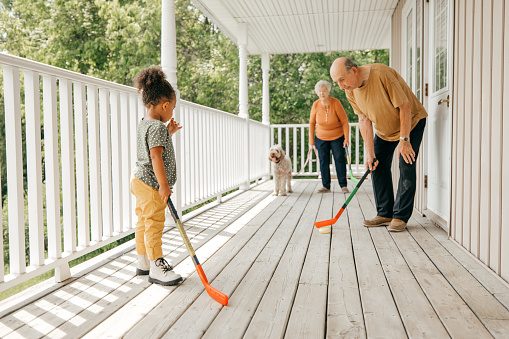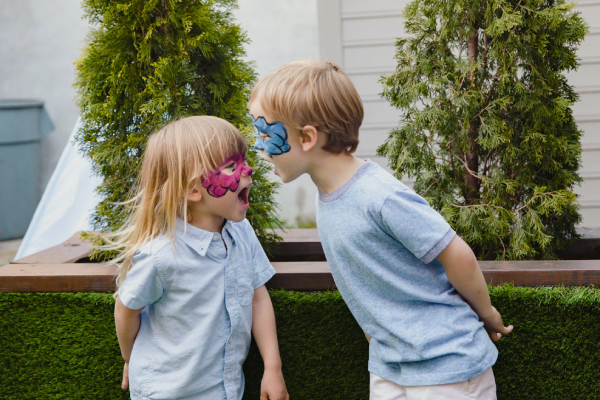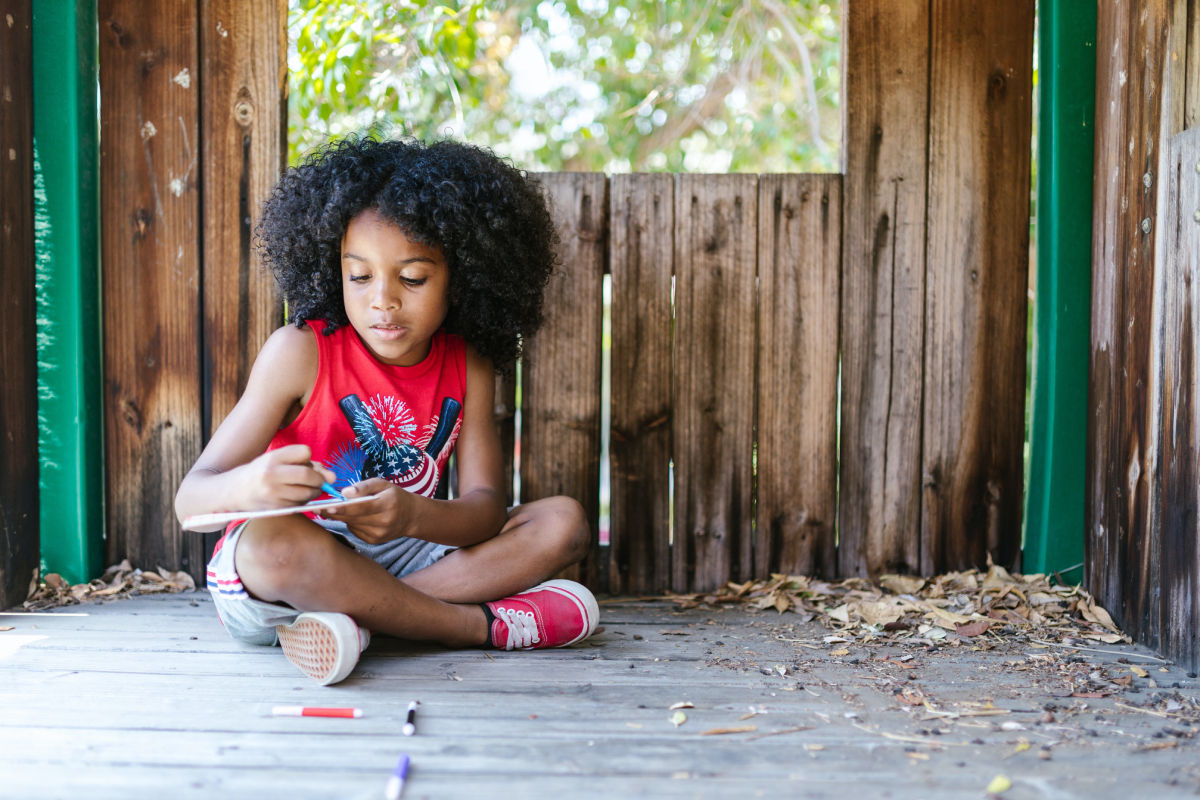Learn 5 Benefits of Playhouse Cabins for Children's Growth
A playhouse cabin is a small structure designed for children to play in. It is typically made of wood and resembles a miniature house or cabin, complete with doors, windows, and sometimes even furniture. Playhouse cabins are a popular toy for young children, providing a safe and imaginative space to play, explore, and socialise with others.
Play is an essential part of a child’s development. It teaches children crucial problem-solving, communication, creativity, and socialisation skills. Play also helps children to develop physically, emotionally, and cognitively. Children learn to explore their environment, interact with others, and create a sense of self-awareness by engaging in play.

Top 5 Benefits of Owning a Playhouse Cabin
1. Creativity and Imagination
Playhouse cabins provide a unique and special space for imaginative play. Children can transform the playhouse cabin into whatever they want, whether it’s a castle, a spaceship, a store, or a cosy home. The cabin’s design and features, such as doors and windows, can inspire children’s imaginations and encourage them to create stories and scenarios.
Imaginative play is crucial for child development because it allows children to explore different roles and perspectives, which enhances their empathy and social skills. It also helps them develop their language and communication skills by creating stories and interacting with others in their imaginative world. Children can learn to problem-solve, make decisions, and think creatively through creative play.
Playhouse cabins can also provide a safe and comfortable space for children to explore their emotions and express themselves freely. In the playhouse cabin, children can create imaginary scenarios that reflect their experiences and feelings, which can help them process their emotions and develop their emotional intelligence.
2. Social Skills
Playhouse cabins can be an excellent tool for promoting social skills in children. The cabin’s unique features and design can encourage children to play together and engage in imaginative scenarios that require cooperation and collaboration. For example, children may take on different roles and responsibilities, such as playing house or creating a store, which can direct them to work together and negotiate roles and tasks.
Playhouse cabins can provide an excellent opportunity for children to practice and develop their social skills. By playing with others, children can learn to communicate effectively, work together, empathise with others, and resolve conflicts in a safe and supportive environment.
Communication
Children can practice expressing their ideas and listening to others in a safe and supportive environment. They can also develop their language and vocabulary through imaginative play scenarios and storytelling.
Cooperation
Playing with others in a playhouse cabin can encourage children to work together, share resources, and take turns. This can help them develop their teamwork and problem-solving skills.
Empathy
Children can learn to understand and appreciate different perspectives and emotions through imaginative play scenarios. This can enhance their ability to empathise with others and develop their social awareness.
Conflict Resolution
Playhouse cabins can provide a safe space for children to practice resolving conflicts and negotiating solutions. Children can learn how to express their needs and feelings while also considering the needs and feelings of others.
3. A Sense of Independence
Having a playhouse cabin can give children a sense of responsibility and independence. Children can take ownership of the space and take on roles as caretakers, decorators, or organisers. This can instil a sense of pride and accomplishment in children as they take on responsibilities and see their efforts reflected in the playhouse cabin.
Moreover, having a playhouse cabin can also provide a sense of personal space and autonomy. Children can use the cabin as a private retreat or a space to play independently, which can help them develop an understanding of self-awareness and self-esteem. It allows them to make decisions about how they use the area, which can foster independence and self-confidence.
Building confidence and self-esteem through independence is essential for children’s development. It allows them to develop a sense of agency and control over their lives, enhancing their overall well-being. Children who feel empowered and confident are likelier to take on new challenges, pursue their interests, and develop their talents and skills.

4. Outdoor Play
Playing outdoors in a playhouse cabin can provide children various physical and mental health benefits.
Playhouse cabins can provide a safe and comfortable outdoor space for children to play. Children can have a designated area for imaginative play away from screens and distractions by setting up a playhouse cabin in the backyard or a nearby park. The cabin can also provide shelter from the sun, wind, or rain, allowing children to play outside in various weather conditions.
Physical Activity
Outdoor play allows children to engage in physical activities that promote their gross motor skills and overall fitness. Playing in a playhouse cabin may involve climbing, crawling, and running, which can improve children’s strength, coordination, and cardiovascular health.
Vitamin D
Exposure to sunlight is an essential vitamin D source for healthy bone development and immune function. Playing outside in a playhouse cabin can provide children with sunlight exposure, promoting their overall health and well-being.
Sensory Stimulation
Outdoor play provides a range of sensory experiences that can promote children’s cognitive and emotional development. Nature’s sights, sounds, and textures can stimulate children’s senses and enhance their creativity and curiosity.
Stress Reduction
Outdoor play can provide a sense of calm and relaxation, reducing stress and anxiety in children. The natural environment can be soothing to children’s emotional state, allowing them to feel more relaxed and content.
5. Cognitive Development
Playhouse cabins can help with cognitive development in children by encouraging problem-solving skills and decision-making. The unique features of the cabin, such as doors, windows, and furniture, can prompt children to think critically and creatively to create imaginary scenarios and solve problems that arise during play.
For example, children may need to decide how to arrange the furniture in the cabin to create a specific space, such as a kitchen or bedroom. They may also need to determine who will play what role, such as the parent or the child, and what tasks they will perform during play.
Through these types of play scenarios, children can develop problem-solving skills, creativity, and decision-making abilities. They can also enhance their memory, attention, and concentration as they engage in imaginative play and storytelling.
Language Development
Play provides opportunities for children to practice and develop their language skills through conversation and storytelling. As children engage in imaginative play, they may use new words and phrases to express their ideas and feelings.
Spatial Awareness
Playing in a playhouse cabin can enhance children’s spatial awareness as they navigate the space and interact with objects and people. Children may also develop their understanding of distance, size, and shape through imaginative play scenarios.
Problem-Solving
Imaginative play in a playhouse cabin can allow children to practice problem-solving skills as they encounter new situations and challenges during play.
Creativity
Play can stimulate children’s creativity and imagination as they develop new ideas and scenarios during play. This can enhance their ability to think outside the box and find new solutions to problems.
Check this article out: Investing in a Cabin: A Guide to Making the Best Decision for Your Future
Conclusion
Playhouse cabins can be a valuable addition to a child’s play area. They can provide a range of benefits for children’s development, including encouraging creativity and imagination, promoting social skills, providing a sense of independence, promoting outdoor play, and helping with cognitive development.
Children can develop problem-solving skills, decision-making abilities, creativity, and language development through imaginative play in a playhouse cabin. Playing outside in a playhouse cabin can also provide opportunities for physical activity, vitamin D exposure, sensory stimulation, and stress reduction.
For parents and caregivers, setting up a playhouse cabin can be a great way to encourage children to engage in imaginative play, foster social skills, and promote outdoor activity. When choosing a playhouse cabin, it’s essential to consider the age and interests of the children, as well as the size and features of the cabin.
In addition to providing a play space, parents and caregivers can also use the playhouse cabin as a tool for teaching and learning. For example, children can learn about gardening by planting and caring for a small garden near the cabin or sustainability by using recycled materials to decorate the cabin.
About Custom Cabins Waikato
Custom Cabins Waikato specialises in designing and building bespoke playhouse cabins for children. Our mission is to provide high-quality playhouse cabins that are safe, durable, and inspiring for children to play in.
Our playhouse cabins are designed to meet each family and child’s unique needs and preferences. We offer a range of customisation options, including size, style, colour, and features. Our cabins can be built depending on the customer’s preferences.
At Custom Cabins Waikato, we work closely with our clients throughout the design and construction process to ensure their vision is realised. We pride ourselves in providing excellent customer service, ensuring that each project is completed to the highest standards.
